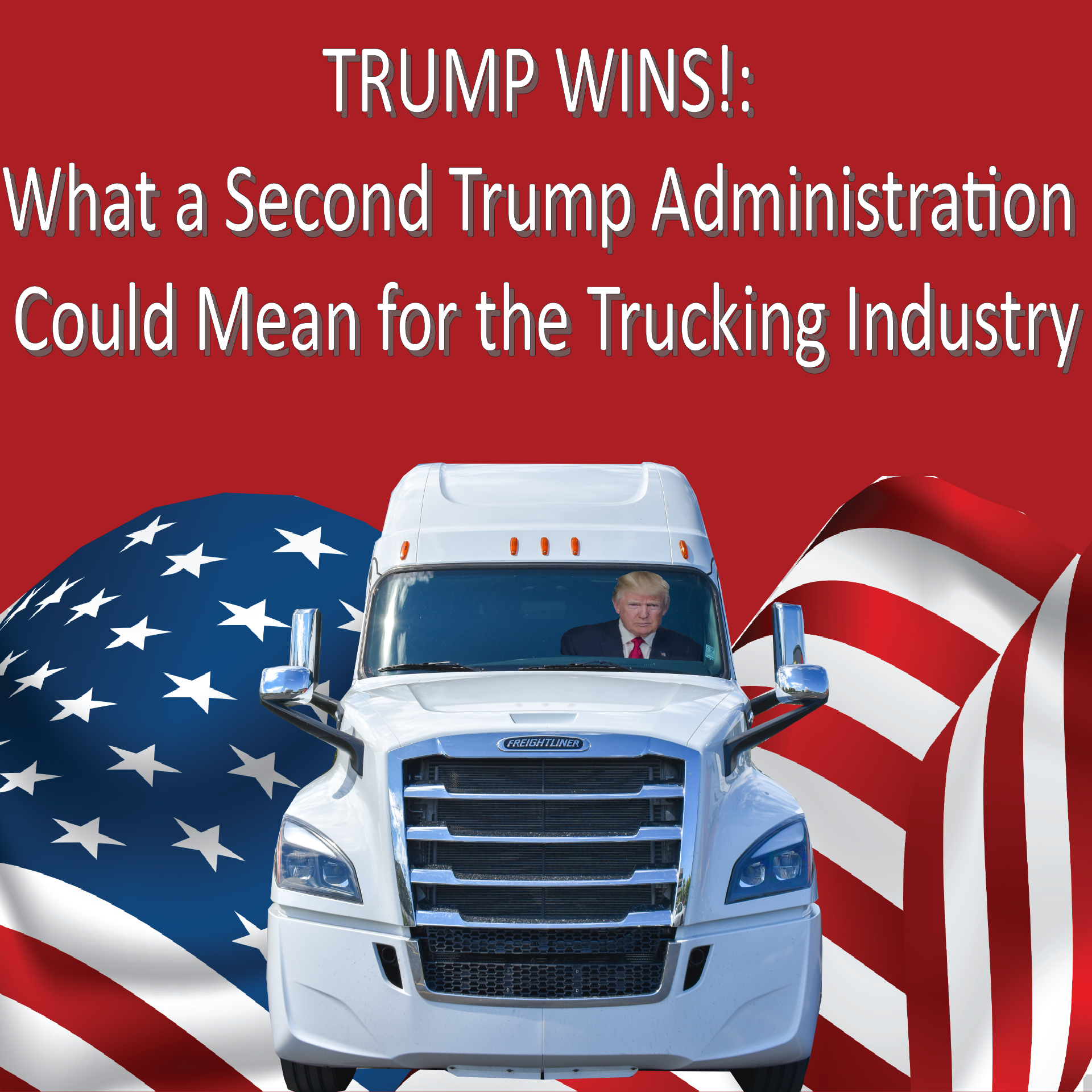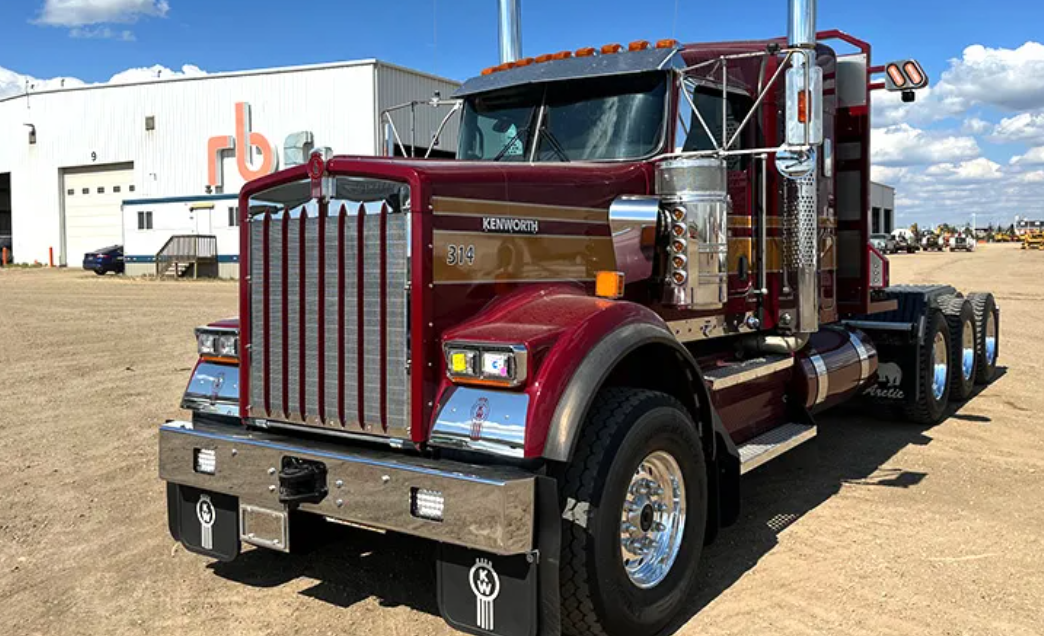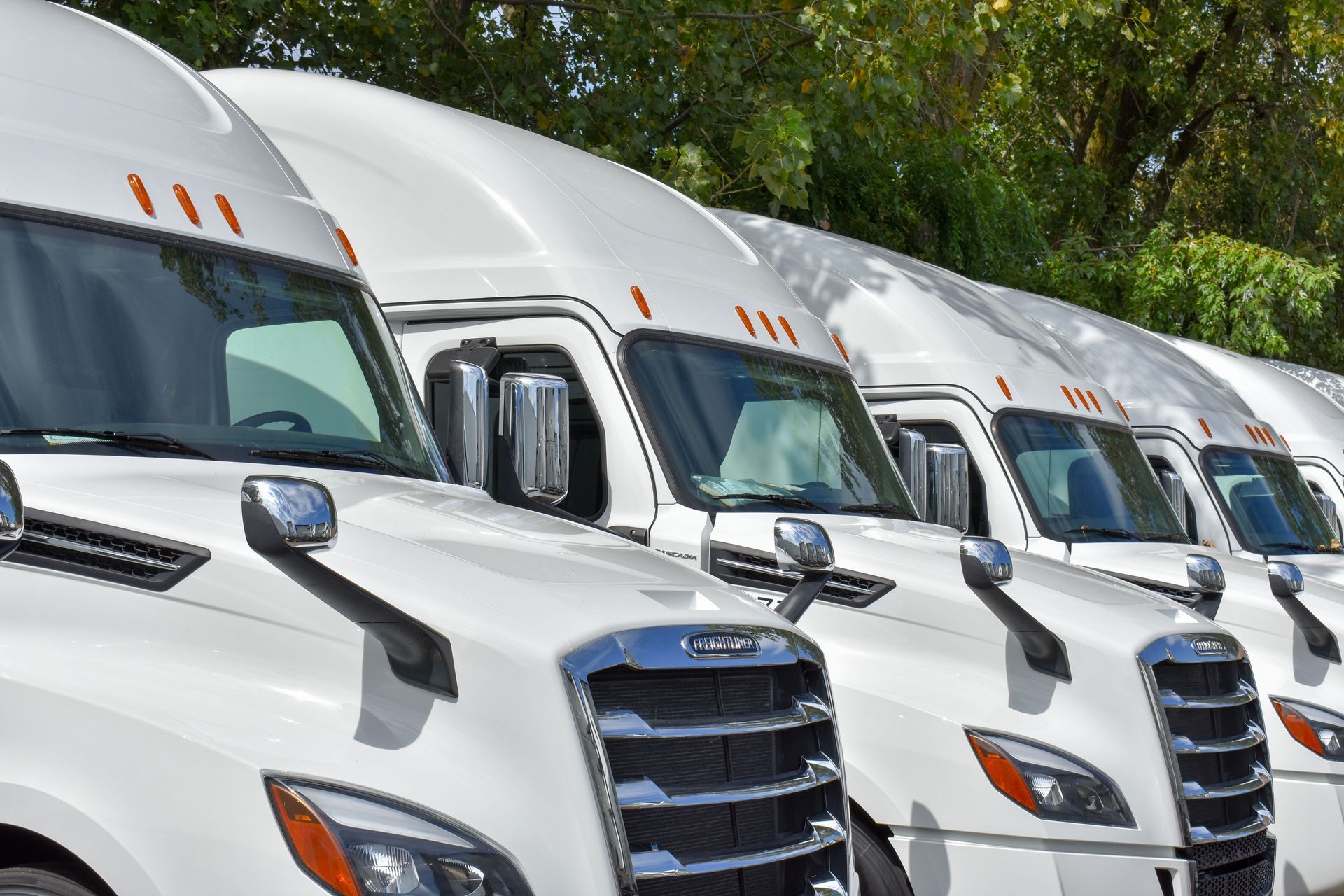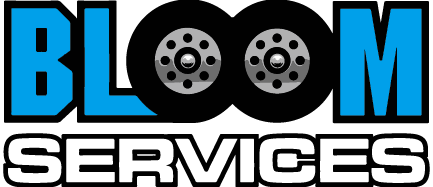What a Second Trump Administration Could Mean for the Trucking Industry

With Donald Trump winning the 2024 U.S. presidential election and the Republican Party securing control of both the House and Senate, the trucking industry stands at the cusp of significant changes. Reflecting on Trump's first term, businesses can anticipate policies that emphasize deregulation, infrastructure investment, and adjustments in trade through tariffs—all of which could profoundly impact freight and logistics.
Deregulation and Industry Flexibility
During his first administration, Trump prioritized reducing regulatory burdens on businesses to stimulate economic growth. A second term is likely to continue this trend, potentially leading to:
- Simplified Compliance: Easing regulations related to hours of service, electronic logging devices, and environmental standards could lower operational costs for trucking companies.
- Operational Efficiency: Reduced red tape may allow carriers to optimize routes and schedules more freely, enhancing productivity.
- Innovation Encouragement: Fewer constraints could foster technological advancements in logistics and fleet management.
While deregulation can offer immediate benefits, it's crucial for the industry to balance efficiency gains with safety and environmental responsibilities.
Tariffs Boosting Domestic Freight
Trump's approach to trade has historically involved imposing tariffs to protect American industries. Renewed tariff policies might result in:
- Increased Domestic Production: Tariffs on imports could encourage businesses to manufacture goods within the U.S., escalating the demand for domestic freight services.
- Supply Chain Shifts: Companies may restructure their supply chains to adapt to new trade dynamics, affecting freight patterns and volumes.
- Short-Term Freight Surge: The initial implementation of tariffs often leads to stockpiling goods before tariffs take effect, temporarily boosting freight demand.
However, it's important to consider potential retaliatory measures from trade partners that could impact export volumes and international logistics.
Infrastructure Investment
Infrastructure was a key focus during Trump's first term, and with congressional support, substantial investments could be made in:
- Road and Bridge Improvements: Upgrading critical transportation networks can reduce vehicle maintenance costs and improve transit times.
- Enhanced Logistics Hubs: Development of ports and intermodal facilities may streamline freight operations and expand capacity.
- Technological Integration: Investment in smart infrastructure could facilitate the adoption of autonomous vehicles and advanced traffic management systems.
These improvements would not only benefit trucking companies but also contribute to overall economic growth by improving supply chain efficiency.
Potential Challenges
While the prospects seem positive, the industry should be mindful of:
- Market Volatility: Changes in trade policies can lead to fluctuating freight demand, requiring agile operational strategies.
- Regulatory Overlaps: State and local regulations may still pose challenges despite federal deregulation efforts.
- Environmental Concerns: Deregulation might lead to increased scrutiny from environmental groups and the public, possibly affecting company reputations.
A Second Trump Term
A second Trump administration could herald a period of significant change for the trucking industry, marked by deregulation, infrastructure development, and altered trade policies. These factors are poised to boost freight demand and streamline operations. However, companies should remain adaptable, balancing new opportunities with potential risks to navigate the evolving landscape successfully.
Bloom Services, Inc
We aim to make your transition into our company as seamless as possible. We cover the costs of your hotel, and Uber from the airport for orientation, we reimburse flights and travel to orientation, which takes place in Bloomingdale, IL. Orientation is concise, typically lasting only a day, so you can quickly get back on the road and start earning.
By joining our team, you are not just taking a job; you are becoming part of a community that values your skills, respects your time, and rewards your efforts. We look forward to welcoming you aboard and supporting you in achieving your professional and personal goals.
For more information or to apply, visit www.bloomtrucks.com/apply or call us at 630-504-6126.



office & Parking depot
5120 Belmont Rd Unit K, Downers Grove, IL 60515, USA
Hours of operation
Mon - Sun: 7am-5pm
